BREAKING: Toyota And Tesla Partnering On EV?
The San Francisco Chronicle is reporting that California Governor Arnold Schwarzenegger has said that Toyota will team up with Tesla to “build electric cars in California.” The governor made this shocking revelation at Google’s I/O Conference today, and told reporters [via the Sacramento Bee]
Today is a very exciting day for me because … I am also going over to the Bay Area to talk about Tesla and Toyota forming a partnership, where they take one of the Toyota cars and make them electric. And again, they’re going to do that here in California.
The obvious scenarios involve joint manufacturing at Toyota’s former GM joint-venture plant NUMMI in Fremont, CA, although there has been no confirmation of these or any other details yet. [UPDATE: According to insidebayarea.com, a Downey, CA city councilman
Daimler is Tesla’s only current OEM partner, and it would have right of first refusal on any acquisition offer made for the California EV firm. Cooperation was focused on an EV version of Daimler’s fading Smart city car. Tesla was briefly mooted as a homegrown savior for NUMMI, which Toyota moved to wind down after GM abandoned the JV in bankruptcy last year (production there ceased on April 1 of this year). That suggestion was emphatically rejected by Tesla, for the simple reason that
we need about 500,000 square feet for our plant. NUMMI is 5 million.
Tesla has been expected to announce a production site for its Model S sedan, widely speculated to be located in Southern California. Consideration of a brownfield site in Downey, AC had previously drawn protests, casting Tesla’s 2011 Model S production schedule into doub t.
As the industry leader in hybrid technology, Toyota has always been wary of rushing plug-ins to market, particularly lithium-ion batteries. A plug-in Prius has been tested and talked about for ages, but Toyota’s timeline for series production has always been conservative, especially compared to Nissan’s Leaf and GM’s Volt dashes. Even recent test drives of pre-production Prius PHEVs don’t mention sale dates or prices.
But Toyota’s lithium-ion partnership with Panasonic is clearly the key player here. Though Toyota doesn’t seem keen to make the li-ion leap, Toyota-Panasonic is close to a deal to supply batteries to the now Ford-less Mazda. And look at that: Tesla and Panasonic recently inked a cell-supply deal. This might be starting to make some sense…
More by Edward Niedermeyer
Latest Car Reviews
Read moreLatest Product Reviews
Read moreRecent Comments
- MaintenanceCosts Poorly packaged, oddly proportioned small CUV with an unrefined hybrid powertrain and a luxury-market price? Who wouldn't want it?
- MaintenanceCosts Who knows whether it rides or handles acceptably or whether it chews up a set of tires in 5000 miles, but we definitely know it has a "mature stance."Sounds like JUST the kind of previous owner you'd want…
- 28-Cars-Later Nissan will be very fortunate to not be in the Japanese equivalent of Chapter 11 reorganization over the next 36 months, "getting rolling" is a luxury (also, I see what you did there).
- MaintenanceCosts RAM! RAM! RAM! ...... the child in the crosswalk that you can't see over the hood of this factory-lifted beast.
- 3-On-The-Tree Yes all the Older Land Cruiser’s and samurai’s have gone up here as well. I’ve taken both vehicle ps on some pretty rough roads exploring old mine shafts etc. I bought mine right before I deployed back in 08 and got it for $4000 and also bought another that is non running for parts, got a complete engine, drive train. The mice love it unfortunately.



















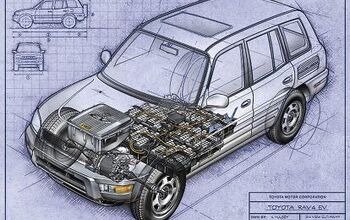
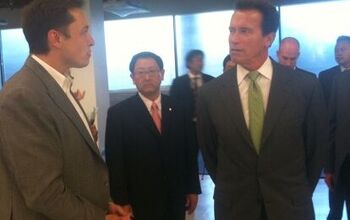
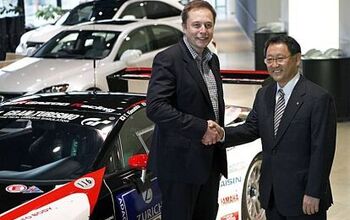
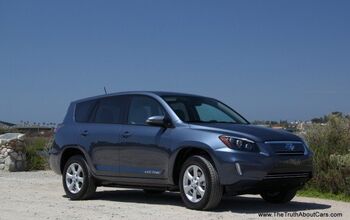




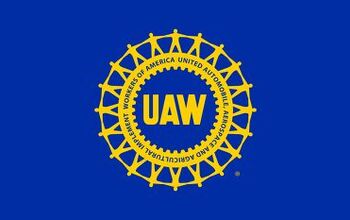






Comments
Join the conversation
Awesome move for Tesla.
I love the picture. You could add to the caption: Volkwagen attempts to reassert itself as #1 automaker over Toyota in the meantime.